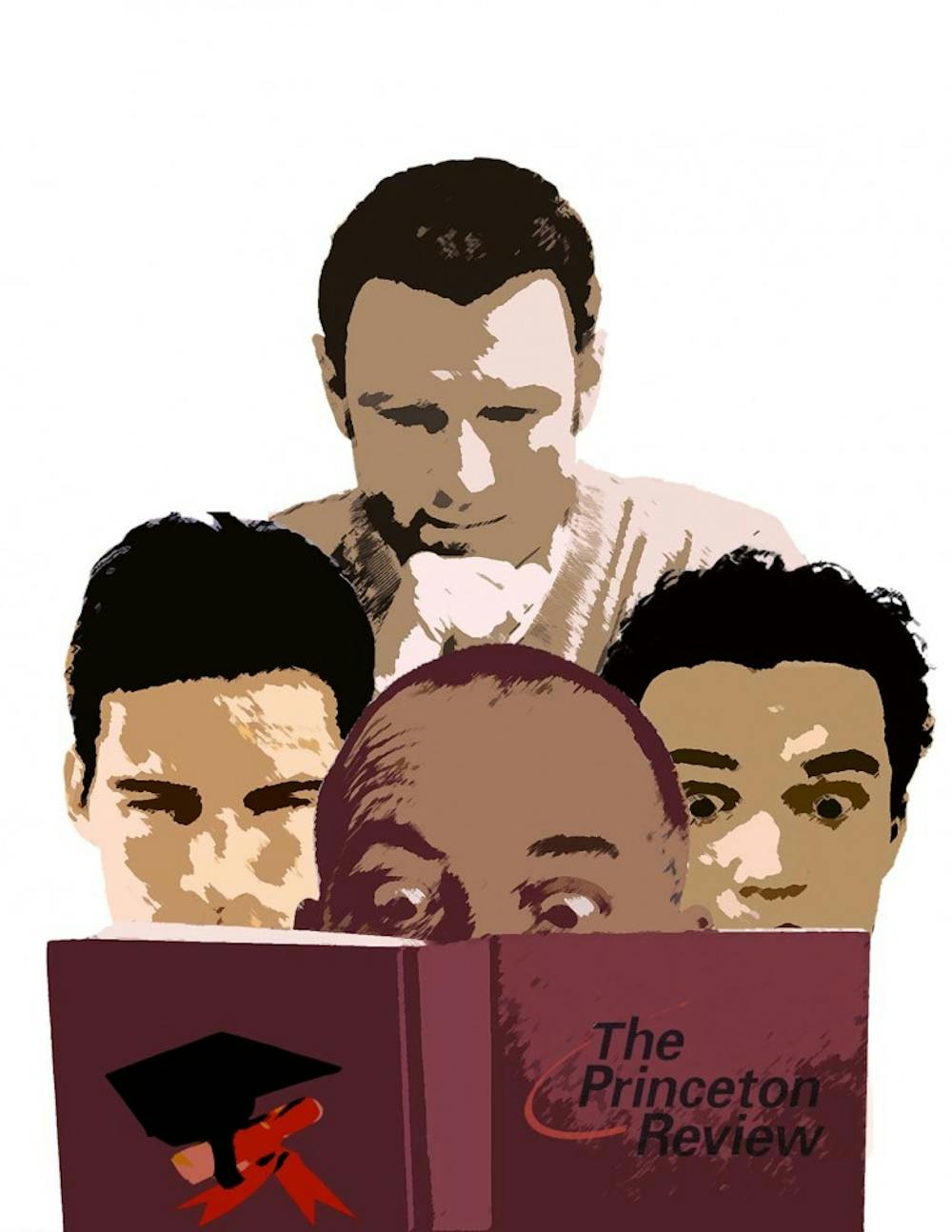Student survey can get UP in guide
(Photo Illustration by Alexander Domingo -- The Beacon)
By Corey Fawcett, Staff Writer -- fawcett13@up.edu
Even though the University of Portland's recent flood of applications is at a record high of 12,000, UP still isn't in the Princeton Review's annual guide to the best colleges in the U.S. But UP is taking steps to get there.
"We've always done well in any ranking," UP Chief Marketing Officer Laurie Kelley said. "It's kind of weird we're not in there."
Masses of college-bound high school students, their advisers and parents are familiar with the book, which profiles hundreds of American universities and colleges. It takes into account academics, administration, demographics, town life, school stereotypes, politics, quality of life, extracurriculars and the school's social scene.
"Families, especially parents, tend to look at those magazines as a resource," Dean of Admissions Jason McDonald said.
The Princeton Review, which has included UP in a number of lists on the Princeton Review website such as "Best Western Colleges" and "America's 286 Green Colleges," has a ranking system that differs from others such as those of the U.S. News and World Report.
The system is based on students' opinions, as opposed to surveys taken only by faculty and administrators. This has given the famous college guide a reputation as a peer review, giving prospective collegiates the answers they're really looking for.
"It's definitely more student-based," Kelley said.
Until last year, the school had not administered the Princeton Review survey required to get a place in the book.
In the past, being in the Princeton Review guide was not much of a concern for UP, because the school has long been included in other respectable rankings such as the U.S. News and World Report's annual "Best Colleges" list. However, according to Kuffner, the Princeton Review rankings have grown in importance over time.
"There are a lot of surveys UP is in, so it wasn't a high priority, but now we're making sure we're in it," Kelley said.
Sophomore Brendan Ralph used the guide when he was looking to apply for college.
"I remember seeing some obscure schools in the book, and friends' schools that were definitely not as good as UP," Ralph said. "I wondered why (UP) wasn't in there."
West Coast Conference schools similar to the University of Portland in size, academics and prestige, such as Gonzaga University and Santa Clara University have made it into the Princeton Review book. Other schools to which UP applicants typically apply, such as Seattle University and Willamette University, are in it as well.
UP's marketing department is concerned Princeton Review readers may mistakenly attribute UP's exclusion from the book to subpar academics or facilities.
"That's a misconception we want to get rid of," Assistant Director of Media Relations Joe Kuffner said.
The potential price of being in the guide was also something that kept UP out of the Princeton Review rankings.
"There was concern as to how much it would cost," Kuffner said.
After some investigation, it came to light there was no entrance fee.
"Last January in 2010, we got through to someone at the Princeton Review, and they explained it," Kuffner said. "They require students to participate in a survey for three consecutive years, and there needs to be a certain amount of responses for unfiltered answers from students."
Last year, the survey was advertised at UP through word of mouth. It was mainly completed by students with leadership positions at UP, such as ASUP senators and Residence Life employees. The Princeton Review deemed the number of responses appropriate and accepted them.
This year the survey was sent out to all students in a mass e-mail.
"We are the only WCC school that's not in the guide," Kelley wrote in the e-mail. "We need you!"
If enough people respond this year and next year, UP can be in the 2013 edition of the college guide. Students can take the survey any time. After being accepted, UP will have to continue administering the survey every three years.
"We don't want to hassle students, but we appreciate them taking the time to do it," Kuffner said.
UP Prospective Freshmen
2006 – 6,355 applicants
2011 – 11,964 applicants
2011 Averages:
GPA: 3.69
SAT: 1230
2006 acceptance rate: 65%
2011 acceptance rate: 42% (projected)
Percentage of 2011 applicants from outside Oregon: 58
States with "marked increases" in UP applicants: Colorado, Arizona, Idaho
Source: UP Department of Admissions








